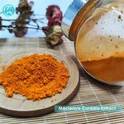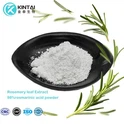Dihydromyricetin (DHM) is an increasingly popular natural supplement known for its potential to reduce the effects of alcohol intoxication, relieve hangover symptoms, and promote overall well-being by acting on the brain's neurotransmitter systems. Extracted from plants such as Ampelopsis grossedentata and Hovenia dulcis, DHM has been extensively studied for its benefits as a GABA-A receptor modulator. However, despite its many positive attributes, DHM is not for everyone. This article explores who should avoid taking DHM, the reasons behind this, and what alternative solutions may be available.

Mechanism of Action of DHM and GABA-A Receptors
To understand who should avoid taking DHM, we must first delve into its primary mechanism of action. DHM acts on GABA-A receptors in the brain. GABA (gamma-aminobutyric acid) is a key inhibitory neurotransmitter that helps maintain a balance between excitation and inhibition in the brain. When GABA binds to its receptors, it opens chloride channels, reducing neuronal excitability and promoting relaxation and calmness.

DHM is a positive modulator of these GABA-A receptors, which enhances the natural calming effects of GABA. This modulation is critical because it counteracts the overstimulation of these receptors during alcohol intoxication. In this way, DHM can help people "sober up" after drinking too much and prevent some of the symptoms associated with hangovers.
Who shouldn't take DHM?
1. People taking benzodiazepines
DHM interacts with the same GABA-A receptors as benzodiazepines, a class of drugs widely used to treat conditions such as anxiety, insomnia, and epilepsy. Common benzodiazepines include diazepam (Valium), alprazolam (Xanax), lorazepam (Ativan), and clonazepam (Klonopin). These drugs bind to the BZ (benzodiazepine) binding site on the GABA-A receptor, enhancing the effects of GABA and producing sedative, anxiolytic, and muscle relaxant effects.
However, taking DHM with benzodiazepines can lead to problematic interactions. Studies have shown that DHM competes with benzodiazepines for the same BZ binding sites. While DHM enhances the effects of GABA, its presence inhibits the desired effects of benzodiazepines. This competition reduces the therapeutic effectiveness of benzodiazepines and can worsen symptoms such as anxiety or insomnia, creating a dangerous situation if an individual develops a dependence on these medications.
Therefore, anyone taking benzodiazepines or similar GABA-A modulating medications should avoid taking DHM unless otherwise advised by a healthcare professional. To prevent these interactions, it is recommended that at least 4-6 hours be allowed between benzodiazepines and DHM, but it is best to consult a doctor before using DHM with these medications.
2. People Taking Soy Isoflavones or Other GABA Modulators
Soy isoflavones are a common soy supplement that people often consume for its potential benefits in alleviating menopausal symptoms, improving bone health, and supporting cardiovascular function. However, soy isoflavones act as BZ site antagonists of GABA-A receptors. Essentially, they block the same site that DHM is trying to activate, potentially neutralizing the effects of DHM.
If someone takes soy isoflavones and DHM at the same time, the soy isoflavones may prevent DHM from effectively activating GABA-A receptors, thereby weakening the potential sedative and anxiolytic effects of DHM. This interference may also extend to other GABA modulators, such as certain herbal supplements (like valerian root) or pharmaceutical agents that act on the same pathway.
Therefore, people taking soy isoflavones or other natural or medicinal GABA-A modulators should avoid taking DHM, or space their doses by at least 4-6 hours to reduce the risk of an interaction.
3. People with low blood pressure
GABA's calming effects on the nervous system can also lower blood pressure by promoting blood vessel relaxation. Because DHM enhances GABA's activity, people with naturally low blood pressure or those taking antihypertensive medications may experience a dramatic drop in blood pressure when using DHM. Symptoms of low blood pressure include dizziness, fainting, fatigue, and blurred vision.

People who are prone to low blood pressure or are taking medication for high blood pressure should avoid taking DHM or consult a healthcare provider before adding it to their treatment regimen, as the combined effects of the two may cause a dangerous drop in blood pressure.
4. Severe Alcohol Addicts
While DHM is widely advertised as a hangover cure and a potential aid in relieving alcohol intoxication, severe alcohol addicts may face complications when using it. DHM's ability to reduce the intoxicating effects of alcohol may tempt some people to continue drinking beyond normal limits, mistakenly believing that this supplement will protect them from excessive drinking.
In addition, alcohol dependence is a serious condition that often requires structured rehabilitation and medical supervision. Alcohol addicts may become dependent on benzodiazepines (such as diazepam or lorazepam) as part of the detoxification process, and as discussed, combining these drugs with DHM may result in dangerous drug interactions. DHM should not be used as a "quick fix" for alcohol dependence, but rather in a controlled environment where professionals can monitor its effects.
5. Pregnant or Breastfeeding Women
Given that DHM modulates the central nervous system and may affect neurotransmission, pregnant or breastfeeding women are best to avoid using DHM unless otherwise directed by a physician.
6. People with severe liver and kidney disease
For people with liver and kidney dysfunction, the body's ability to process and eliminate DHM may be impaired, leading to potentially toxic levels of the substance in the blood. This may exacerbate symptoms of liver or kidney disease and cause further health complications.

Anyone with liver and kidney disease should exercise caution and consult a healthcare provider before using DHM to avoid worsening their condition.
Alternatives for People Who Should Avoid Taking DHM
For those who cannot take DHM due to contraindications or potential drug interactions, there are several alternatives that can achieve the same calming and neuroprotective effects:
L-Theanine: This amino acid, commonly found in tea, promotes relaxation without causing drowsiness and can be a safe alternative to DHM for stress relief.
Magnesium: Magnesium plays a key role in calming the nervous system and may be beneficial for those who struggle with anxiety or tension without interacting with GABA receptors.
Ashwagandha: This adaptogen helps the body cope with stress and anxiety and can be a DHM alternative for people taking benzodiazepines or GABA-regulating supplements.
Conclusion
While DHM has promising benefits in relieving anxiety, relieving hangovers, and supporting overall neurological health, it is not suitable for everyone. People who take benzodiazepines, soy isoflavones, or other GABA modulators, as well as those with low blood pressure, severe alcohol addiction, or impaired liver and kidney function should use DHM with caution or avoid it altogether. Pregnant and breastfeeding women should also use it with caution due to the lack of comprehensive research on its safety.
If you are interested in high-content DHM products, xi'an kintai biotech inc offers a high-purity DHM powder series derived from naturally grown vine tea plant sources. In addition, if you encounter any problems during the development process, they are also able to provide reliable DHM formulation solutions with their years of research experience. If you would like to know more about this product, please contact Email: sales@kintaibio.com | WhatsApp: +86-181 8259 4708 and there will be more professional people to ask you for answers.







